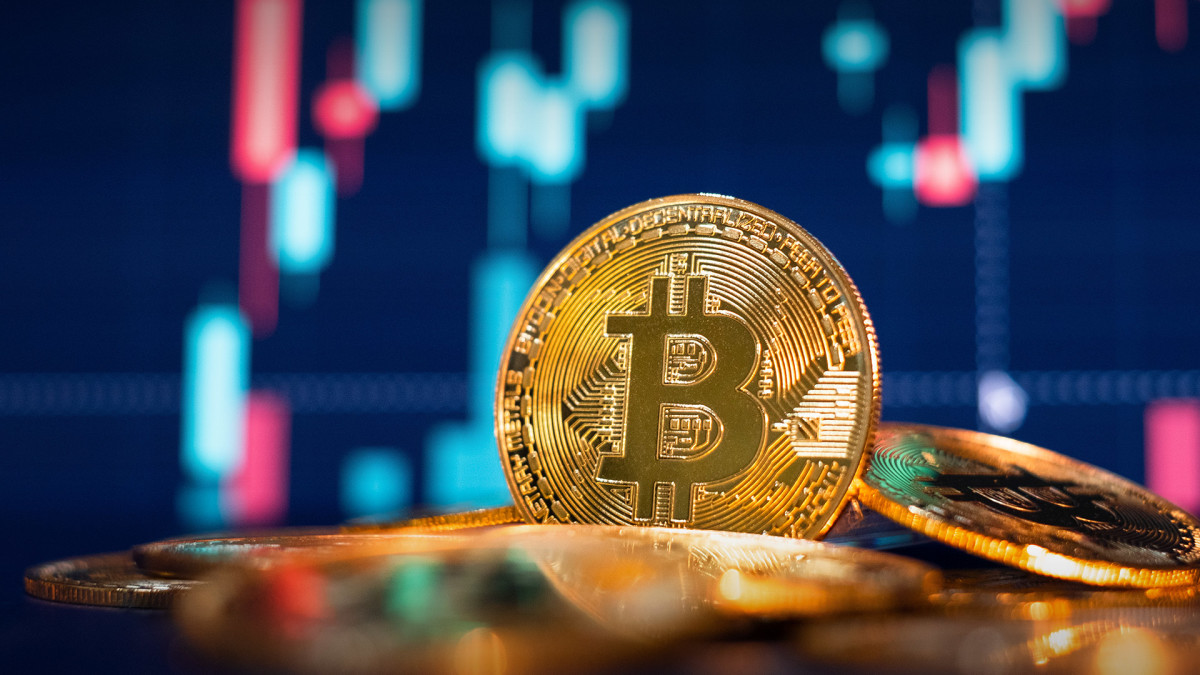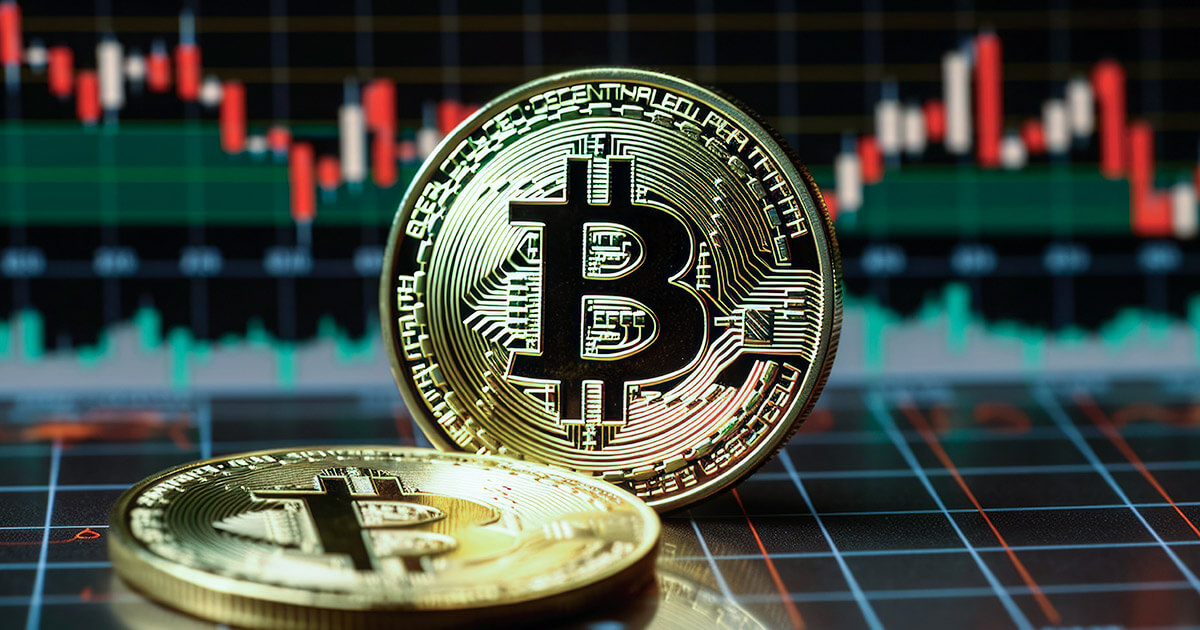Bitcoin price decline follows the Fed’s interest rate hike, reflecting market reactions to tighter monetary policies and the shift in investor sentiment. The most recent shift in the price of Bitcoin is indicative of the continued volatility of the cryptocurrency market, which has seen many ups and downs. Following the Federal Reserve’s latest rate decrease and Jerome Powell’s updated inflation projection for 2025, Bitcoin, the biggest and most well-known cryptocurrency in the world, has seen a sharp decline to $100.3K. This essay will explore the ramifications of these changes and look at how they have affected the price of Bitcoin and the market as a whole.
Bitcoin Reacts to Rates
We must comprehend how interest rates impact the financial industry, including cryptocurrencies, to comprehend why Bitcoin declined following the Federal Reserve’s interest rate decision. An increase in interest rates lowers liquidity and raises borrowing costs. When borrowing costs rise, investors choose bonds and traditional currencies over Bitcoin. Lower interest rates, on the other hand, make borrowing more affordable and promote investments in riskier assets like cryptocurrencies. Investors may more easily finance speculative projects like Bitcoin and other cryptocurrencies when interest rates are lower because they increase liquidity.
Bitcoin Drops After Fed
The market learned that the Federal Reserve is combating inflation and cooling an overheated economy by raising interest rates. Although intended to curb inflation, this policy instantly dropped Bitcoin’s price. Bitcoin and other cryptocurrencies often fluctuate after important news events like the Fed’s rate announcement. Investors may reconsider holdings when the Fed boosts rates.

As investors seek safer, more predictable assets in high-interest-rate settings, Bitcoin and other cryptocurrencies lose appeal. Bitcoin fell from its highs when the Fed raised interest rates, suggesting a relationship between interest rate fluctuations and market behavior. Bitcoin’s value plunged as traders liquidated crypto assets for safer investments after the Fed’s announcement.
Bitcoin Price and Sentiment
BTC is impacted by investor sentiment. Investors worry when the Fed raises rates, triggering market speculation. Bitcoin investors may worry about aggressive central bank monetary policy. Bitcoin is risky during economic uncertainty due to its decentralization and value volatility. Hedge fund investors sell Bitcoin, decreasing its price. Due to this attitude change, Bitcoin’s price falls when the Fed hikes rates. Bitcoin hedges inflation. As the Fed raises interest rates to fight inflation, Bitcoin’s inflation-hedging appeal decreases. When the Fed lowers inflation worries, investors may sell Bitcoin for safer assets.
Bitcoin and Altcoin Link
Interest rate decisions by the Fed affect more than Bitcoin. Other cryptocurrencies fall as Bitcoin does because the cryptocurrency market is interconnected. Since investors value cryptocurrencies like Bitcoin, Ethereum, Ripple, and others react similarly. Market confidence declines when bitcoin prices fall, spurring altcoin sell-offs. Bitcoin’s relationship with the crypto market highlights central bank policies’ influence. Traditional financial rules are affecting crypto as institutional investors and financial institutions increase. Fed rate decisions may impact all financial assets, including cryptocurrencies.
Bitcoin’s Long-Term Potential
Bitcoin plummeted after the Fed’s interest rate announcement, but investors still see its long-term potential. Bitcoin overcame external factors despite short-term volatility. The cryptocurrency’s decentralization and restricted supply appeal to long-term diversifiers. Bitcoin’s growing acceptance by mainstream institutions and governments suggests its continued importance in the global financial ecosystem. Despite price volatility, many investors believe Bitcoin’s long-term prospects are positive. Price drops after the Fed’s announcement may allow long-term investors to enter the market.
Bitcoin and Rate Hikes
Bitcoin investors may make wise investments by being aware of Fed interest rate choices. The economy and financial markets may be significantly impacted by central bank actions. The Fed raises interest rates to calm the economy and reduce inflation. Risky investments like Bitcoin lose money. Investors should pay attention to Fed pronouncements as they have the potential to impact Bitcoin’s value both immediately and over time. To buy or sell bitcoin, investors need to be aware of changes in monetary policy. Some investors may buy Bitcoin at a discount, while others who anticipate Fed rate rises may sell.
Bitcoin’s Global Financial Role
Bitcoin’s role in the global financial system cannot be emphasized, despite its price decline after the Fed’s interest rate announcement. Bitcoin is the most popular and traded cryptocurrency and leads digital asset adoption. Bitcoin pioneered decentralized digital currencies and revolutionized how people see and use money, despite price adjustments. As governments and financial institutions adopt digital currencies and blockchain technology, Bitcoin’s global financial importance will increase. Bitcoin’s long-term attractiveness as a store of value and hedge against traditional financial institutions remains notwithstanding the Fed’s decision’s short-term market slump.
Also Read: Bitcoin’s $102K Support Key to Avoiding Liquidity Crisis
Conclusion
Finally, Bitcoin’s decrease after the Federal Reserve’s interest rate announcement highlights how banking laws affect cryptocurrencies. Interest rates and market sentiment affect Bitcoin and other cryptocurrencies. After the Fed hiked rates, investors dumped Bitcoin to adapt to the economy. Bitcoin’s short-term price drop is severe, but its long-term prospects are bright. Bitcoin may remain a major financial player as institutional use grows and the cryptocurrency ecosystem matures. To make savvy cryptocurrency investments, investors must understand interest rates and Bitcoin’s price movements.







